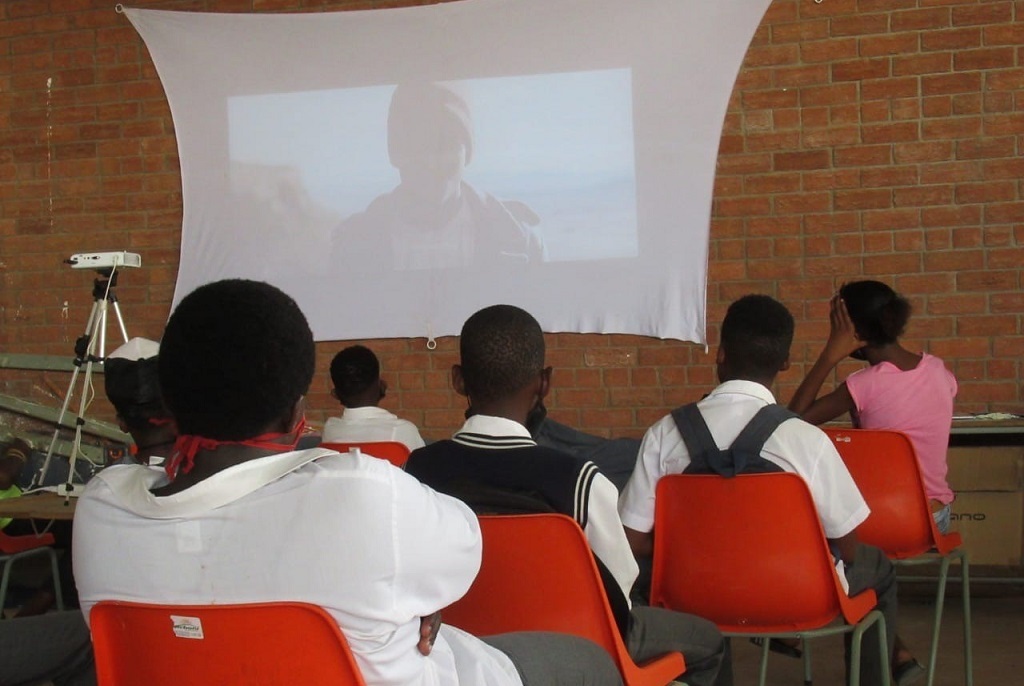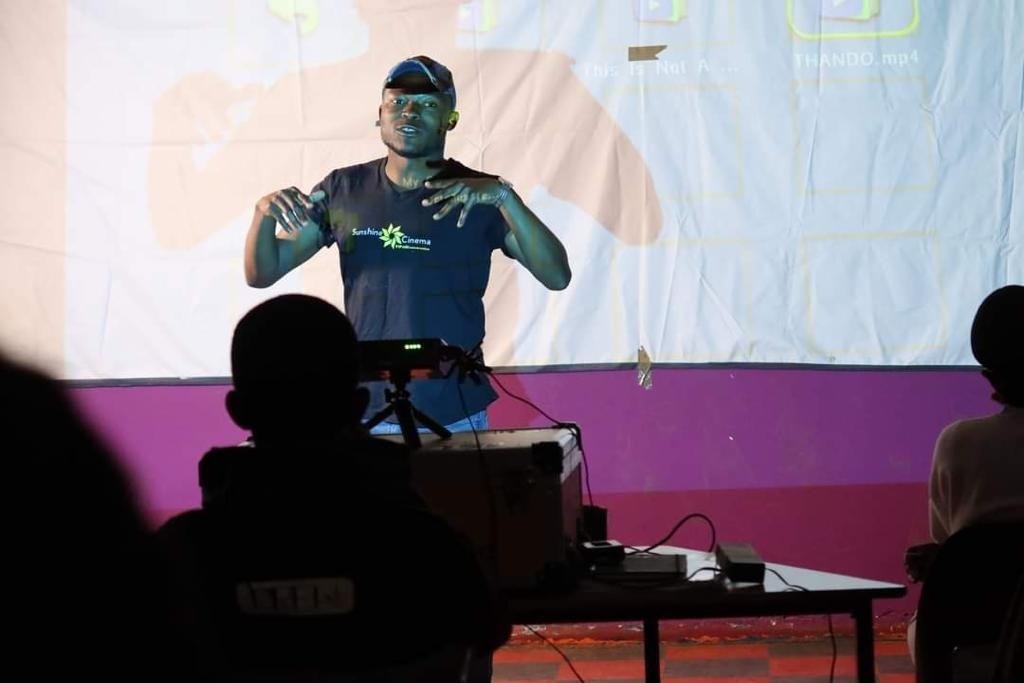News
How a South African solar-powered mobile cinema is creating jobs for young people

The solar-powered mobile cinema comes kitted with a micro projector, tripod, fold-out screen and a battery.
- High costs of data, airtime and a lack of Wi-Fi make it difficult for African audiences to access locally made films.
- A solar-powered mobile cinema initiative is increasing accessibility to African films while also creating opportunities for training and job creation.
- Since starting 10 years ago, Sunshine Cinema has trained over 80 young people across southern Africa.
- For climate change news and analysis, go to News24 Climate Future.
A South African film initiative, Sunshine Cinema, is creating training and job opportunities for young people, using solar-powered cinemas.
These mobile theatres were developed by husband-and-wife team Rowan Pybus and Sydelle Smith, in 2013.
Pybus and Smith both have a background in filmmaking and were inspired to start Sunshine Cinema when they realised they could not reach viewers in Africa. Smith says that the high cost of data, airtime and lack of wifi makes it difficult for African audiences to access locally made films.
They had worked on Amazing Grace, a film documenting the journey of Lloyd Maanyina, a Zambian man who used to cut down trees for charcoal burning as a form of income. A change of heart saw Maanyina starting to plant trees as a “payback” to nature. But Maanyina hadn’t been able to watch the award-winning film about his life.
In response, Pybus and Smith developed Sunshine Cinema. Apart from promoting African storytelling, the initiative also supports the training of young people from rural and peri-urban areas including informal settlements in South Africa, Zimbabwe and Malawi. “We train young people to be media entrepreneurs capable of earning an income while sharing locally relevant films…” says Smith.
The training programme is designed in collaboration with the University of Cape Town’s film and media department.
Participants in their training programme, also known as Sunshine ambassadors, learn about basic photo and video production, audience facilitation and media entrepreneurship. They also gain work experience.
“Since May 2021, over 40 young South Africans have been earning incomes from the skills acquired in the programme through hosting impact screenings, professional photography, short video production, social media management and design, graphic design, and other freelance digital marketing opportunities. On average most have earned between R1 000 to R5 000 a month,” says Smith.
READ | 90% of Kenya’s power now comes from solar, wind – but it’s an exception in Africa
The sunshine ambassadors are also equipped with a mobile cinema kit known as a sunbox, used for screenings.
The sunbox includes a solar PV portable power system – this is a battery that is charged using solar panels. The battery is then used to power the other equipment needed for the screening, such as the projector. “Solar [power] was chosen as it is a renewable, green solution to our increasing carbon-based electricity crisis,” Smith adds. It is also possible to charge the battery via grid-connected power, Smith says.
Other items in the sun box include a tripod or stand for the projector, blackout material, a foldout screen and a camera for the Sunshine ambassador to document the screening.
The ambassadors go to local community halls, crèches, shipping containers or any spaces available to them to set up the cinema and host screenings. They can choose films to screen from Sunshine Cinema’s catalogue of over 80 films. They earn a “going work fee” for each screening they facilitate.
In turn, their local audiences have a chance to discuss the topics explored in film, which are often relevant themes that affect their lives.
Morena Mofokeng is one of the Sunshine ambassadors. He showcases films to his community in Orange Farm, south of Johannesburg. Prior to his training with Sunshine Cinema, he was a freelance filmmaker and is now earning five times more than he used to, he told News24.
Mofokeng says the initiative is making a positive impact on his community. The films cover issues like gender-based violence, poverty and teenage pregnancy. This gives people the confidence to open up and ask for help. Mofokeng said he has been able to direct people to organisations where they can receive the help they need.
“Some of these films allowed members in the community who were voiceless to open up and engage in conversations around certain issues. We even refer them to a professional organisation if we can help them,” Mofokeng said.
Smith says that the core of what they do is training young people to be active citizens through film. “The way how you can physically bring people together through a cinema screen is a very powerful tool for dialogue and engagement … Storytelling is such an ancient form of communication, especially in Africa. We work out who we are through the stories we tell about ourselves and our communities.”

